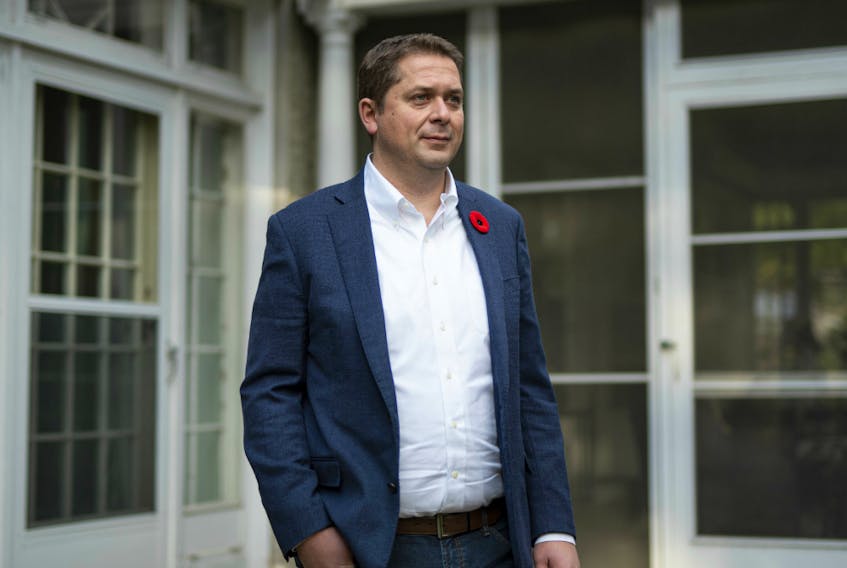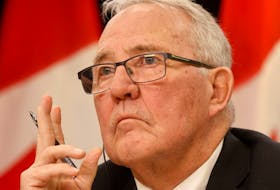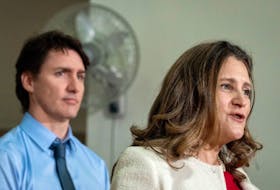Before we get into Andrew Scheer and his future with the Conservative party, let’s just remember one thing: this guy saved Conservatives from choosing Maxime Bernier as their leader.
Scheer became leader in 2017 with 50.95 per cent of the vote, compared with Bernier’s 49.05 per cent. It was a close-run thing. Yet in October’s general election Scheer’s Tories outpolled every other party in the country, including the Liberals, while Bernier’s vanity project, the People’s Party, attracted less than 2 per cent of the vote. If Bernier had been leader, Tory loyalty would undoubtedly have worked in his favour, but his tirades against immigrants and 16-year-old Swedish activists made clear just what a mistake he’d have been. Even his home riding, which he’d represented for a decade, and which his father held before him, decided they’d had enough of his shtick. So, thanks Scheer, for that.
Political parties aren’t love-ins, however, and 31 months after he became the Tories’ chosen one, he’s having trouble finding a friend in any of his party’s competing camps. General agreement has it that Conservatives underperformed in the election partly because Scheer couldn’t square his social conservative personal beliefs with the more broadly moderate views of the country as a whole. No matter how often he insisted he wouldn’t let his private views intrude on his duties as prime minister, he lacked the conviction to convince doubters.
So now what happens? Of course: various social conservatives with recognizable name plates are letting it be known they are dissatisfied with his performance, because he also sought support from voters with less inflexible standards. “A lot of social conservatives have no interest whatsoever in backing Andrew Scheer,” former MP and bedrock social conservative Brad Trost told The Globe and Mail.
No matter how often he insisted he wouldn’t let his private views intrude on his duties as prime minister, he lacked the conviction to convince doubters
Hanna Kepka of Campaign Life Coalition told the CBC “the very significant socially conservative voting bloc was in absolute dismay” every time Scheer addressed his position on abortion or same-sex marriage. Kepka also indicated her members “were counting on Andrew Scheer to be a faithful Catholic, a faithful man of God who would stand for those fundamental positions,” a proposition that would have made life for Scheer even more difficult in Quebec, which recently removed the crucifix from its legislature and introduced a law treating religious symbols like the work of the devil.
So-cons may be a “significant” voting bloc, but they’re still just a bloc, and not numerous enough to elect one of their own. They are never entirely happy with national election results because a guy like Trost, who ran for leader in 2017 and peaked at 14 per cent, is never going to be prime minister. You could call them up any day of the year and they could be counted on to grumble. Scheer is the closest they’ve come to a leader who agrees with them, and still they want him gone. Hasta la vista. Who can we reject next?
If social conservatives were all Scheer had to worry about, his future might not look so grim. After all, what other party can they vote for? But while his right flank is under attack, his left is being challenged as well, precisely because he’s viewed as too much of a sympathizer with social conservative beliefs.
Scheer’s discomfort at discussing same-sex issues or abortion was evident each time he was asked about it, and he was asked often once journalists spotted the weakness. There is no question it cost the party votes, particularly in the urban centres where Liberals won heavily.
Quebec senator Jean-Guy Dagenais said Scheer’s “beliefs about abortion and same-sex marriages led to a mass exodus of the Quebec vote,” and quit the Tory caucus in protest. Stephen Harper’s former communications director Kory Teneycke said opposition to same-sex marriage “could be a fatal issue” and is viewed by many as bigotry. And former cabinet minister Peter MacKay famously suggested his position “hung around Andrew Scheer’s neck like a stinking albatross.”
Scheer’s discomfort at discussing same-sex issues or abortion was evident each time he was asked about it, and he was asked often once journalists spotted the weakness
MacKay was the last Red Tory leader of the Conservatives, and is being ballyhooed as a leading prospect to replace Scheer should he fail to survive a leadership review in April. He says he’s doing nothing to encourage that talk, but with social conservatives calling for Scheer’s head on the right and moderates shaking pitchforks at him from the opposite flank, there is no obvious ground he can occupy to satisfy both camps.
Since his loss Scheer has moved slowly to address the problems he faces, echoing the same uncertainty he showed in responding to Liberal challenges during the campaign. It took him more than a month to fire two of his top aides, and he continues to insist he won’t march in Pride parades, which is like giving the Liberals advance warning not to throw out their attack ads, because they might come in handy should Scheer hang on as leader.
After a post-election meeting with his caucus he set off on a cross-country tour of the Tory shires, in the hope that local organizers and party loyalists could tell him something that escaped the attention of the high-paid people who ran his campaign.
Explaining to Scheer why he lost seems somewhat redundant at this point.
Lisa Raitt, a smart Conservative who lost her own seat in suburban Toronto, put it succinctly when she noted the party can’t win power if it can’t win in the cities. That’s not rocket science, and shouldn’t require a listening tour to grasp. A new leader should definitely keep it in mind. The old leader shouldn’t have to be told.
Copyright Postmedia Network Inc., 2019









